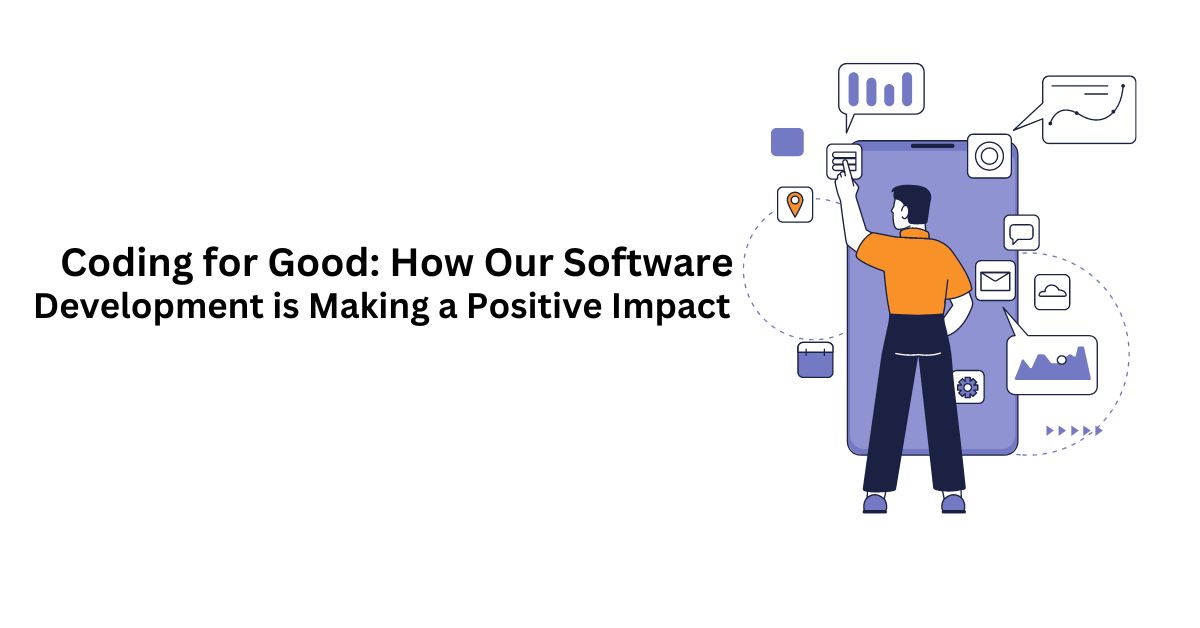ML Development with Pre-Trained Cloud APIs in Application Building

5 min read
The integration of Machine Learning (ML) into software applications has become an essential strategy for businesses aiming to leverage AI and ML powered solutions. The utilization of pre-trained Cloud APIs in application building presents a streamlined, efficient pathway to incorporating complex ML capabilities without the necessity for extensive machine learning knowledge. This blog explores the use of APIs in machine learning, identifies the best APIs for ML projects, and delves into how these APIs facilitate the utilization of machine learning capabilities in developing AI and ML-driven software applications.
How do people use APIs in Machine Learning?
APIs, or Application Programming Interfaces, serve as the bridge between different software programs, allowing them to communicate and leverage each other’s functionalities. In the field of machine learning, developers use APIs to access pre-trained models hosted on cloud platforms.. These models, trained on vast datasets, can perform a wide range of tasks, from image and speech recognition to natural language processing and predictive analytics. Developers can integrate these ML capabilities into their applications by making API calls, bypassing the complex and resource-intensive process of training models from scratch.
How do APIs Help in Using Machine Learning Capabilities?
The use of Machine Learning (ML) APIs is transforming the landscape of application development by making advanced AI functionalities more accessible and manageable for developers across various skill levels. These APIs act as gateways to powerful machine-learning models, allowing for the seamless integration of advanced AI capabilities into applications. Here’s a detailed exploration of how ML APIs are facilitating the use of machine learning capabilities:
Accessibility
One of the most significant advantages of ML APIs is their ability to democratize access to machine learning technologies. Pre-trained APIs offer developers the opportunity to utilize complex ML models that have been trained on extensive datasets, covering a wide range of functionalities from image recognition to natural language processing. The simplicity of accessing these models through standard HTTP requests removes the steep learning curve traditionally associated with machine learning, making it feasible for developers without deep ML knowledge to implement AI features in their applications. This accessibility significantly broadens the scope of AI integration across different types of software, enabling more businesses to leverage the power of machine learning.
Cost and Time Efficiency
Developing machine learning models from scratch is a resource-intensive process that requires substantial investments in data collection, processing, model training, and computational infrastructure. ML APIs circumvent these hurdles by providing access to pre-trained, cloud-hosted models. This approach drastically reduces the time and financial costs involved in deploying machine learning capabilities, making it an attractive option for businesses looking to enhance their applications with AI without the hefty investment. The efficiency gained through using ML APIs allows for quicker iterations and deployments, accelerating the development cycle and bringing AI features to market faster.
Scalability
Scalability is an essential factor in the success of digital applications, mainly as user bases grow and data volumes increase. Cloud-based ML APIs are inherently designed to handle scalability challenges, offering dynamic resource allocation to meet the fluctuating demands of applications. It means that as an application grows, the ML functionalities it relies on can scale accordingly without compromising performance or incurring significant additional costs. This scalability ensures that applications remain responsive and efficient, regardless of the number of users or the complexity of the tasks being performed.
Continuous Improvement
Another pivotal benefit of utilizing ML APIs is the commitment of cloud service providers to continuous improvement. These APIs are regularly updated with enhancements, new features, and optimizations, reflecting the latest developments in machine learning research and technology. Developers can thus ensure that their applications always benefit from the most advanced AI capabilities available without needing to invest time and resources into upgrading their models manually. This continuous improvement not only extends the lifespan of applications but also keeps them competitive and innovative in a rapidly evolving tech landscape.
What is the Best API for Machine Learning?
Choosing the optimal API for machine learning (ML) isn’t a straightforward decision; it profoundly depends on the specific needs of your project, including what ML functionalities you’re aiming to implement and your development environment preferences. When looking at the leading cloud platforms, each offers its own set of robust and versatile ML APIs tailored to various requirements.
Google Cloud AI
Google Cloud AI Platform is celebrated for its comprehensive suite, including AutoML for those with limited ML expertise and a variety of pre-trained APIs for tasks ranging from vision analysis to natural language processing. Amazon Web Services (AWS) Machine Learning enriches the ML landscape with its extensive services like SageMaker for building, training, and deploying ML models, as well as pre-trained AI services that simplify adding AI functionalities to applications.
Microsoft Azure Cognitive Services
Microsoft Azure Cognitive Services rounds out the trio with its diverse APIs and services designed for integrating AI and ML tasks effortlessly into applications, with specialities in computer vision, speech services, and decision-making functionalities. Ultimately, the “best” API aligns seamlessly with your project’s unique requirements, ensuring you leverage the most suitable ML capabilities to enhance your application’s performance and user experience.
Each platform—Google Cloud AI, AWS Machine Learning, and Azure Cognitive Services—brings unique strengths to the table, from advanced AutoML capabilities and extensive pre-trained APIs to comprehensive services and cognitive solutions, making it vital to consider your project’s specific needs when selecting the most appropriate platform.
The Impact of Pre-Trained Cloud APIs on Application Development
The integration of pre-trained Cloud APIs into application development heralds a new era of innovation, enabling the rapid deployment of ML-driven features with minimal complexity. This approach not only accelerates the development cycle but also empowers businesses to harness the transformative potential of AI and ML-powered solutions, driving more excellent user experiences and operational efficiencies. As the technology continues to mature, the strategic importance of pre-trained Cloud APIs in building intelligent, adaptive applications will undoubtedly grow, marking a significant shift towards more intelligent, data-driven software ecosystems.
Future Prospects
The future of ML development with pre-trained Cloud APIs is auspicious. As these technologies continue to evolve, we can expect even more advanced and specialized APIs to emerge, further expanding the possibilities for application development. Additionally, improvements in AI interpretability and ethical AI practices will enhance trust and adoption rates. The ongoing innovation in cloud computing and machine learning technologies suggests that pre-trained Cloud APIs will remain at the forefront of enabling advanced, customized online solutions for years to come.
Conclusion
Pre-trained Cloud APIs are transforming the way applications are built in ML development, offering a practical, efficient route to integrate machine learning capabilities. Whether it’s through Google Cloud AI, AWS Machine Learning, or Azure Cognitive Services, these APIs provide developers with the tools needed to create advanced, ML-driven software applications.
As businesses continue to explore the potential of AI and ML, the strategic deployment of pre-trained Cloud APIs will play a crucial role in developing solutions that are not only innovative but also scalable and cost-effective, paving the way for a future where AI-enhanced applications become the norm.
FAQ
1. What are APIs used for in Machine Learning development?
APIs help developer’s access pre-trained models on cloud platforms, enabling them to integrate machine learning capabilities into applications without needing to build models from scratch.
2. How do Machine Learning APIs make AI technologies more accessible?
Machine Learning APIs simplify access to advanced AI functionalities by providing ready-made models that developers can easily incorporate into their applications, regardless of their level of machine learning expertise.
3. What cost and time benefits do businesses gain from using pre-trained Cloud APIs?
By using pre-trained Cloud APIs, businesses can reduce the time and financial costs associated with machine learning projects, as they eliminate the need for extensive data collection, model training, and infrastructure setup.
4. Which cloud platforms offer Machine Learning APIs, and what are their advantages?
Leading cloud platforms like Google Cloud AI, AWS Machine Learning, and Microsoft Azure Cognitive Services provide robust Machine Learning APIs, each with its own strengths and features tailored to various project requirements.
5. How do pre-trained Cloud APIs impact application development?
Pre-trained Cloud APIs accelerate application development by providing ready-made machine learning capabilities, thereby fostering innovation and enhancing user experiences through the rapid deployment of advanced AI functionalities.
6.What can we expect in the future of Machine Learning development with pre-trained Cloud APIs?
In the future, we anticipate more specialized APIs and enhanced AI capabilities, further streamlining application development and driving the adoption of AI-driven solutions across industries.
Published: April 8th, 2024





